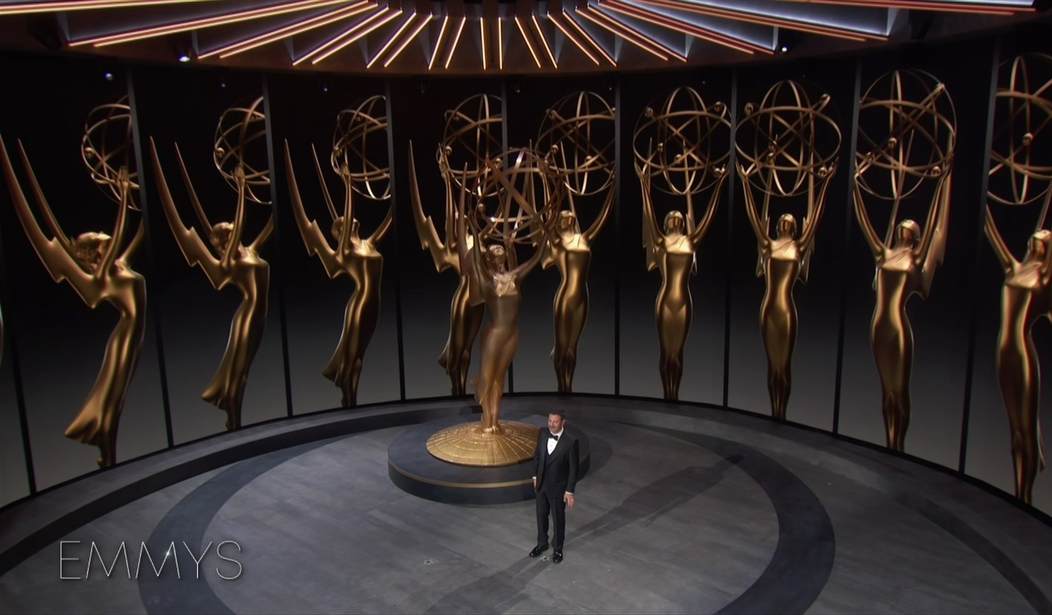As usual, I didn’t watch the Emmy Awards on Monday night and after seeing some of the “highlights” the next day I don’t really feel like I missed out on anything. It turns out that I was far from alone in that decision. Despite the pandemic restrictions being essentially gone, the award show set yet another record for the smallest audience to tune in. The Emmys bounced back a little bit last year from the pandemic edition in 2020, drawing a bit more than 7 million viewers. But this week the viewership plunged to a new low of 6.9 million people. The network is offering a variety of excuses for the poor showing, but none of them really seem to explain what’s happening more than the fact that people just don’t seem to be interested. (Associated Press)
The Emmy Awards hit a new low in viewership on Monday night, with its estimated audience of 5.9 million people even smaller than the COVID-19-disrupted ceremony two years ago.
The Nielsen company said the ceremony honoring television’s best work, where “Ted Lasso” was named best comedy and “Succession” best drama, was down from the 7.4 million people who watched in 2021.
Usually shown on a Sunday night, the Emmys were shifted to Monday to make way for NBC’s first “Sunday Night Football” game the night before.
Usually, the Emmys airs on Sunday night, but that didn’t happen this year. They said they needed to move the date so NBC could air the first Sunday Night Football game of the season. But moving it to Monday put them up against Monday Night Football, so that wasn’t a brilliant move. (Monday Night Football won the night’s rating battle with eight million viewers.
You can’t blame the low numbers on football alone, however. If you take a look at the full ratings list for Monday night, you’ll see that the award show barely beat out a rerun of NCIS. The AP coverage also tries to blame the low ratings on the fact there are so many cable channels and streaming options available today that no shows are able to garner the audiences that were possible back when three major networks were nearly all that was available.
That certainly may be true, but it doesn’t change the fact that a certain percentage of the public is still watching television in the evening. The benchmark to beat is the percentage of those people that you can draw in rather than the raw audience size.
Perhaps the organizers of these award shows need to consider the possibility that people have simply moved on. Do you mean to say that a group of overpaid egomaniacs being given gift baskets worth more than most people’s homes and standing around congratulating each other all night on their beauty, fame, and success isn’t a compelling entertainment option? Who could possibly have guessed?
And then there’s the overt politicization of all of these award shows, which they make no effort to hide anymore. The Emmys, the Oscars, and all the rest have turned into such glaringly obvious progressive/liberal love festivals that they have turned off half of their potential audience before the curtains even go up. Even if I were mildly curious as to which shows were being given the top honors, I don’t need a lecture on social justice as part of the package. If I feel the need for a screed about the evils of “MAGA Republicans,” I’ll go see what Karin Jean-Pierre is up to.
For what it’s worth, congratulations to “Ted Lasso” (whatever that is) for being named the best comedy series. But I somehow doubt it’s as funny as the ratings face-plant that the Emmys consistently delivers in the modern era.








Join the conversation as a VIP Member